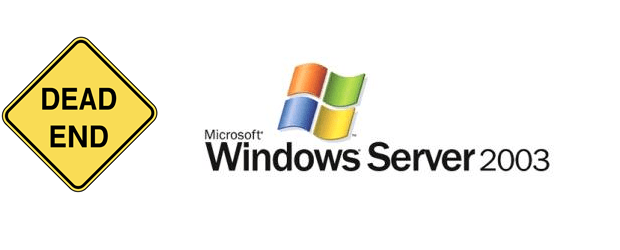While Microsoft’s Windows Server 2003 will reach end of life in July, new research shows more than half of Canadian business are still running at least some of their workloads on the soon to be unsupported platform.
The study was commissioned by Avanade, a business technology solution provider and Microsoft partner, and surveyed businesses across North America. It found that 57 per cent of businesses are still running a portion of their business on the platform (50 per cent in Canada), and most enterprises are considering a cloud-based solution as part of their upgrade scenario.
“The good news is that many CIOs are using the end of support deadline as an opportunity to leverage cloud-based solutions to modernize their infrastructure and create a more agile environment for future migrations,” said Rich Stern, corporate vice-president, infrastructure services global lead at Avanade, in a statement. “Interestingly, among this group, half of the respondents said they are looking to a hybrid platform of both public and private clouds.”
Also 50 per cent of the enterprises surveyed are seeking help from a channel partner experienced in Windows Server 2003 migration. About 42 per cent are currently handling the migrations, while just eight per cent are not satisfied and need more support.
Diving into the Canadian numbers, the Avanade study shows there’s still a lot of work to be done. Canadian business are still running 30 per cent of their critical business applications on Windows Server 2003, and only 37 per cent of applications have bene migrated off the platform. What’s holding them back? The need to rewrite or modernize at least some of their applications in order to complete the migration successfully, with 58 per cent saying at least some work here would be necessary, and 29 per cent saying more than 1/3 of their applications needed to be rewritten or modernized before migration.
Consequently, while 90 per cent of Canadian companies said they had security concerns about running Windows Server 2003 past end of support due to the lack of patches, 52 per cent of companies surveyed they would still be running applications past July.
When it comes to what they’re moving to, cloud computing is definitely in the mix. Half of Canadian respondents said they planned to move to a hybrid cloud platform combining public and private clouds, while 21 per cent were looking exclusively at the private cloud and four per cent solely the public cloud.
North America wide, the top challenges facing businesses undertaking or looking at a migration include concerns about disrupting the business, other projects being higher priority and the process taking longer than expected, all of which were cited by more than 60 per cent of respondents. However, 80 per cent of respondents also said business and IT priorities are aligned on migration, so it’s unusual that 68 per cent said other projects were taking priority.
“This conflicting view of priorities is putting many North American businesses in jeopardy of missing the migration deadline,” said Stern. “With three months until the July 14 date, it’s important to remember the lessons learned from the end of support of Windows XP when some companies waited too late to upgrade before the deadline.”





